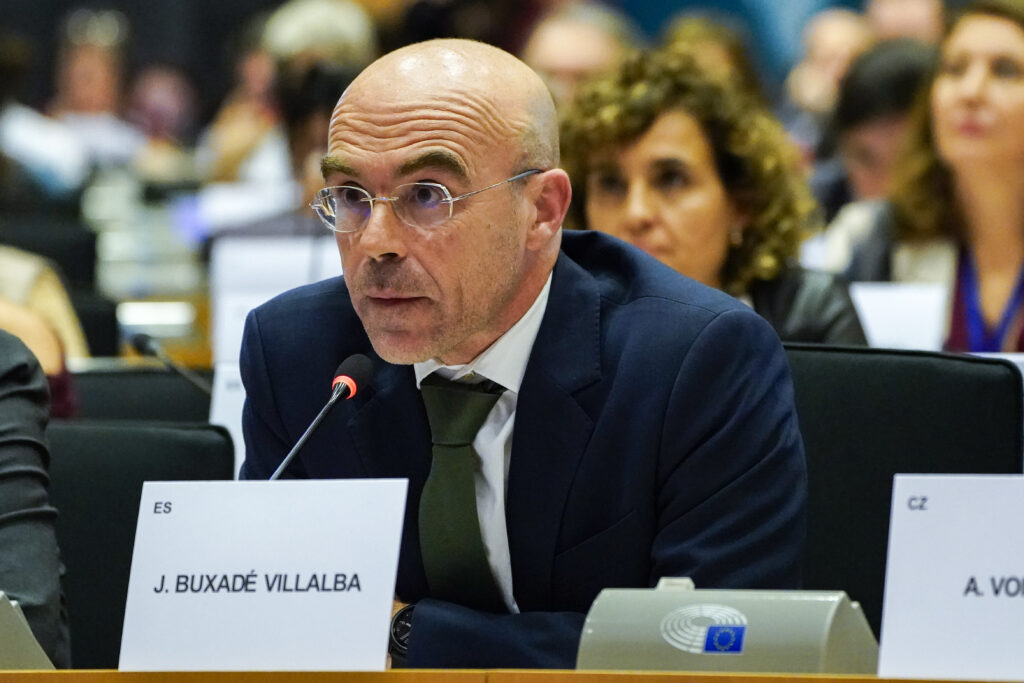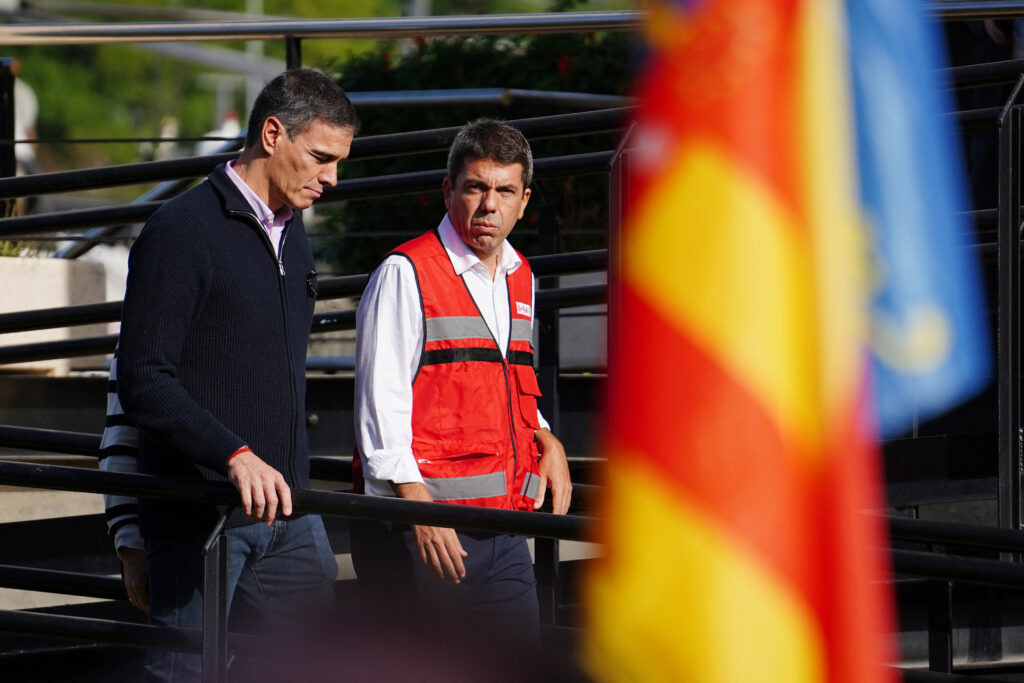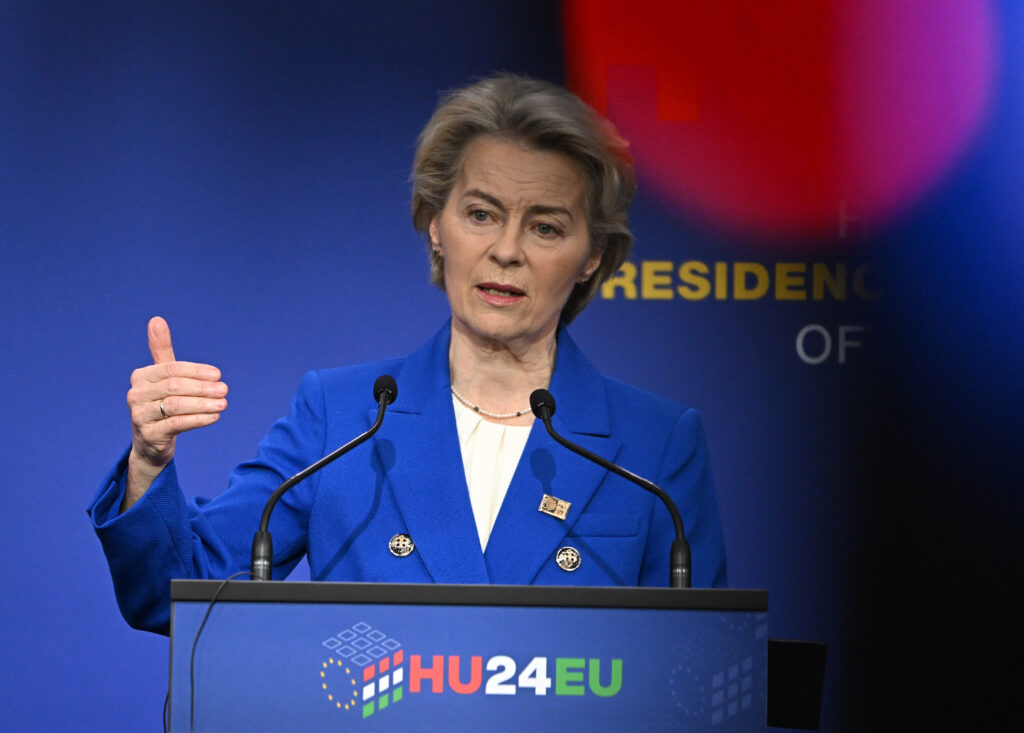Brussels – For days, European politics has been in a stalemate as the groups that make up the Ursula 2.0 majority are clashing head-on over the executive vice-presidencies of the next Commission. The battle is being fought between the Populars (EPP) and the Socialists (S&D) around the Hungarian commissioner candidate Olivér Várhelyi (close ally of Viktor Orbán) and two nominated executive vice presidents, the Melonian Raffaele Fitto and, above all, the Spanish Social Democrat Teresa Ribera, who has ended up in the crosshairs of the right-wingers in both Madrid and Brussels.
Ribera in the eye of the storm
The epicentre of the crisis that is jeopardizing the approval of the entire College has moved from Italy (given the opposition of European progressives to the title of executive vice president for Fitto) to Spain, specifically to the province of Valencia. Teresa Ribera, minister of Ecological Transition and Demographic Challenge as well as third vice-premier of the centre-left executive led by Pedro Sánchez, has ended up at the centre of the cross-attacks of the Partido Popular (PP), which is part of the EPP, and of Vox—the neo-Francoist formation that recently switched from the ECR to the banner of the Patriots—for its alleged responsibility in the flood tragedy that struck the
Comunidad autonoma
last October 29, in which more than 200 people lost their lives.
After being at the centre of the audition of the Vice-President-designate last Tuesday (Nov. 12), the issue of responsibility for the deaths in the Comunidad Valenciana also resurfaced during the debates in the Europarliamentary mini-plenary held yesterday in Brussels, in which the leaders of the PP (Dolors Montserrat) and Vox (Jorge Buxadé), among others, lashed out violently at fellow MEPs elected with PSOE, such as the S&D group leader Iratxe García Pérez. Esteban González Pons, another Spanish member of the EPP, denounced as “immoral” the fact that “the incumbent minister is about to be rewarded (with the vice-presidency of the Commission, ed) while there are still corpses to be recovered from under the mud.”

The clash between the central government and the Generalitat
Political forces in the Iberian kingdom are bouncing responsibility off each other for the catastrophe caused by Storm Dana. Heavily attacking Ribera in what national media call a “total war” is mainly the PP led by Alberto Núñez Feijóo, the main opposition party to the Socialist government of Sánchez, who is also the majority shareholder in the Valencian regional executive (the Generalitat), where it governs together with Vox. According to the right-wingers, Ribera has failed as coordinator of the emergency response and would have failed to put in place adequate prevention to limit the damage of climate disasters of this magnitude.
But from Madrid, these accusations are rejected back to the sender, namely to Governor Carlos Mazón (PP), who, under the strong regionalist structure of the Spanish state, enjoys broad autonomy in the management of the Communidad and would, therefore, be the real culprit in the mismanagement of the emergency. The central government fulfilled its duties promptly, Ribera and his people argue, issuing the weather alert as early as the early morning, while it was the Generalitat that did not warn the population of the impending danger in time and did not put in place timely measures that would have allowed the worst to be averted.

The Future of Ribera
Now, Ribera’s political fate seems to hang by a thread, or rather by the audition before the Congreso de los diputados (the lower house of Madrid’s legislature) scheduled for 20 November, which she herself has requested. There, she will submit herself to the broadsides of the opposition, who do not intend to spare her anything. Above all, based on what emerges, legal proceedings may be initiated against her. This is a very narrow passage and potentially explosive not only for the Sánchez government but also for the institutional transition underway in Brussels, where Ursula von der Leyen is trying to secure the green light for her new Commission, currently in the balance precisely because of the clash between the Populars and Socialists in the EU Parliament.
Partido Popular and the EPP want the deputy premier’s head. They asked, as a condition for ending the clash that is shaking the pro-European majority, that Ribera resign in case a national court formally indicts her (as well as that the progressive groups give the green light to the candidacies of Fitto and Várhelyi). This entanglement puts the Spanish premier in a particularly delicate situation. Sánchez cannot accept the demands of the PP to replace Ribera with an alternative profile (the PP fanned the name of the current Minister of Agriculture, Luis Planas, as a replacement) so as not to give the impression of capitulation in front of the opposition, implicitly admitting Ribera’s responsibilities in the Valencia disaster.

The Reflections in Brussels
Vice versa, if the latter were to be indicted, the consequences would be explosive and difficult to predict, but it would be unlikely for her to remain on board the EU executive. At this point, the EU game for vice-presidencies of the future executive remains deadlocked (barring unforeseen events) until at least next Wednesday, pending what happens to the Madrid-based minister. Should the Spanish judiciary indeed activate, the aftermath could drag on even longer.
For now, Sánchez is holding his ground and does not intend to touch his deputy, strengthened by the substantial support that von der Leyen herself is granting Ribera. Commission spokesman Eric Mamer reiterated yesterday that “the president has given confidence to all the commissioner candidates, and the process for their confirmation is ongoing” and that the Berlaymont does not meddle in the domestic affairs of member states. But it is by no means a foregone conclusion that the new College will take office on Dec. 1 (as in the German People’s Party’s plans), as it is not certain that the vote of confidence by the EU Parliament could come on Nov. 27 during the next plenary session in Strasbourg, as hoped for by House Speaker Roberta Metsola.
English version by the Translation Service of Withub







